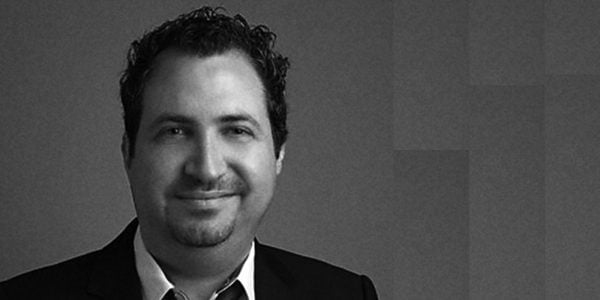By Fouad Abdel Malek, ECD, TBWA/Raad

Part 1: The Potential
Outdoor is no longer a large poster, as most people would have you believe. It’s evolved in leaps and bounds, especially in the last decade. Not necessarily in our part of the world, but there are a few notable exceptions.
Outdoor can take on many guises, from a bus shelter to a pop-up store, from a data-driven digital screen to transit mediums like trains, planes and automobiles. Add to that the advent of immersive experiences, the street-art pieces, ambient structures, stunts and moving wall displays, and it suddenly becomes a much more engaging medium, often with stronger reach and recall than an intrusive online ad. And it doesn’t stop there; last year at the Dubai Motor Show, Infiniti served different content on its digital screens depending on the gender of passers-by. Outdoor now comes equipped with concealed cameras, and through complex algorithms can detect demographic traits and display ads that are more suited to that particular person. Dynamic outdoor is already featuring in media planning in the US and Europe, and should become more prevalent here soon.
According to Facebook, consumers consume media 70 per cent on the go, so OOH can drive those consumers from that medium into the online realm. So now that you know its true potential, I hope you’ll be asking yourself, your advertisers or your clients: “Why are we getting it so wrong?”
Part 2: The Real Deal
On a creative level: Nothing is more satisfying for a creative than to see their work reproduced on a large scale. Outdoor brings you a sense of pride that few other mediums can provide. I’m not talking about the hundreds of square meters of endless burger pictures lining Al Asayel Street or completely unrealistic renderings of real estate dream homes stretching for miles along Sheikh Zayed Road; I’m talking about effective and bold innovative outdoor work.
Part 3: The Exception
We have been fortunate enough to be allowed such a privilege with our interpretation of what a museum like the Louvre Abu Dhabi can propose to a region new to museum culture. “The Highway Gallery” was a collaboration of extraordinary scale and perseverance. From its inception to completion, it redefined the medium, using technology at the core to give an experiential dimension to an otherwise simple outdoor medium. By adding radio jamming, we managed to deliver an audio guide to 12,000 vehicles daily, making their 100km journey from Dubai to Abu Dhabi a more pleasant experience. This outdoor activation brought new meaning to how a museum can be made relevant in this day and age, underlining the strength of the museum’s credo: “See Humanity in a New Light.” And with the bold vision and relentless push for innovation from our Louvre Abu Dhabi client, Highway Galleries 2.0 and 3.0 are coming soon.
Chris Garbutt, Cannes Outdoor jury president said, referring to Budweiser’s Tag Words and McDonald’s Follow the Arches, “We say that culture is our competition, not other ads – and it’s hard to get noticed. If you
can create something that joins those conversations and becomes the focus of the day, I think you’ve won.”
The Louvre execution displayed the hallmarks of what outdoor should deliver: immediacy; fresh thinking (on two classical mediums perceived to be dying); branding prowess; a driver of ticket sales through a direct call to action; inclusivity to be enjoyed on multiple mediums (outdoor and radio); an enhanced journey through content; and a conversation piece at home and abroad.
The data was so astounding we had to run the numbers again and again to ensure they were real. And in the process, I might have been one of the first creatives to be taught how to read and interpret data provided by the Crimson Hexagon media measuring tool. Organic media impressions for Louvre Abu Dhabi were at 329,593 15 days prior to installing the Highway Gallery, and jumped up to a whopping 35million-plus, 15 days after the installation, with an increase of 1,180 per cent in social mentions and unprecedented exposure for the Louvre Abu Dhabi in the world press (more than 1,000 editorial pieces from around the globe).
Outdoor might be different in the future, but one thing will never change: it takes a collaboration among talent, client, agency and third parties to make it work. Once you have all these elements aligned, then there should be nothing stopping you from achieving greatness, and the future of outdoor will be truly bright.










